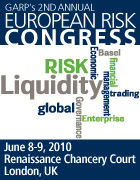In any case, Sharp’s remarks on shale gas exploration and production were the most interesting in his presentation. Shale gas’s emergence into the markets has had a number of impacts that are certainly worth considering in the risk management world, including:
• A re-thinking of LNG markets
• Will it cause the U.S. to become a gas exporter?
• Pipeline and gas plant construction
• Effects on gulf drilling operations
• Government and regulatory policy
Sharp also notes, with a tone of quasi-foreboding, that the emergence of shale gas will delay nuclear and renewable energy developments. On the bright side, Sharp thinks the emergence of shale gas will make the transition to a low-carbon future easier.
Readers take note: the shale gas debate is REALLY heating up in the United States, especially in Texas and now, New York. The lines of the triangular debate are being drawn by gas developers on one side, NIMBY and citizen groups on another side, and government and the need for tax revenue making up the third angle. (Look here, here, and here for an argument from each of these sides.) The risks in shale gas exploration and production go well beyond market forces!
In the press gaggle following his address, Steven Chu remarked on “hydro-fracking,” the method of shale gas removal sparking so much debate (as well as bringing so much new natural gas onto the market). The Energy Secretary said that as long as it is practiced in an environmentally friendly way, hydro-fracking would be “part and parcel” of American energy development.
*
Up next, Lawrence Summers, Director of the National Economic Council...






0 comments:
Post a Comment